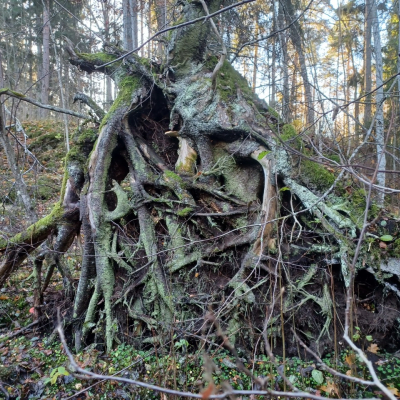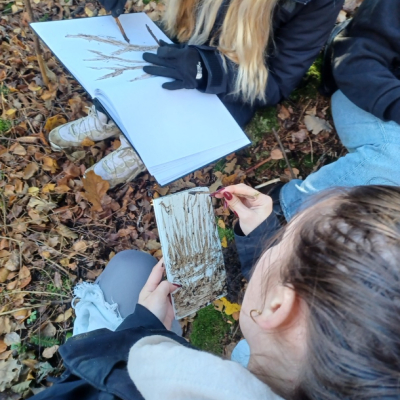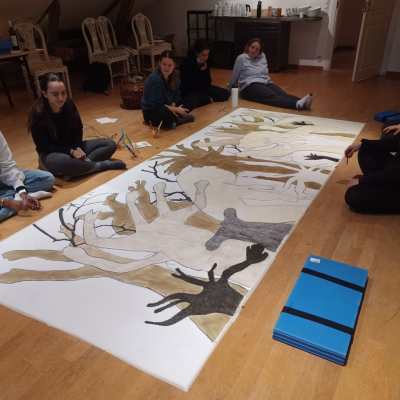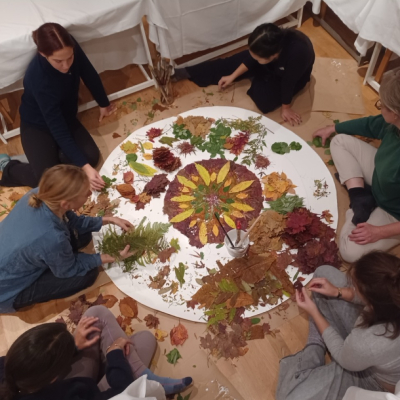Over the past few decades, sustainability in the visual arts has expanded from an ecological focus to a broader cultural context, addressing ecological, economic, political, moral, and ethical concerns. Unlike earlier movements like environmental art, sustainable art advocates for issues such as social justice, non-violence, grassroots democracy, and ecological responsibility.
Before traveling, students engage with sustainability and artistic practice through readings, lectures, and discussions. These activities introduce the evolving role of the arts in society and inspire students to design creative projects, deliver presentations, and write papers on topics such as sustainable materials, recycling, community outreach, and local environmental initiatives. Franklin’s semester-long course emphasizes a “Sense of Place,” encouraging students to cultivate mindfulness through daily practices like journaling, sketching, or walking to enhance their observational and reflective skills.
During the travel component, students participate in projects focused on sustainability and the arts. Past trips included Italy and Switzerland, where visiting the Venice Biennale and Milan’s sustainability projects was combined with a visit to the Art Brut Museum in Lausanne (2019) and staying closer to home by going to Geneva to study issues involved in supporting art professions with the Michelangelo Foundation (2021). In Fall 2024, the course traveled to Finland for the International Socially Engaged Art Symposium (ISEAS Finland). Led by Franklin Professor Clarice Zdanski and her collaborator Katja Juhola, the group attended a symposium at Mustion Linna. The event explored socially engaged art and its role in sustainability, featuring diverse contributors: visual and sound artists, a choreographer, a food innovation researcher, musicians, a forager, a folklore expert, and an expert in Finnish animism.
ISEAS: International Socially Engaged Art Symposium
The symposium’s theme, “The Forest: A New Perspective on Art and Nature,” highlighted the interdisciplinary connections between art, nature, and culture. With ISEAS serving as a “textbook” for the course, students experienced three days of immersive learning, collaboration, and exchange. This hands-on approach provided invaluable insight into arts-based research and its critical role in addressing sustainability and our shared future in the Anthropocene. Artists, researchers, and students alike described the experience as transformative.

Academic Travel is an exploration of the world as well as a journey of self-discovery. By living and working with artists and researchers across diverse disciplines, participants experience a transformative process, engaging in arts-based research to embrace sustainability challenges and envision a shared future in the Anthropocene.
Prof. Clarice Zdanski








